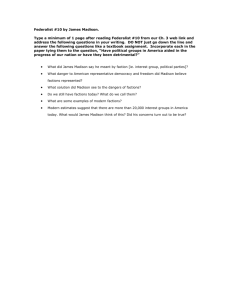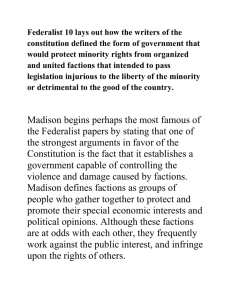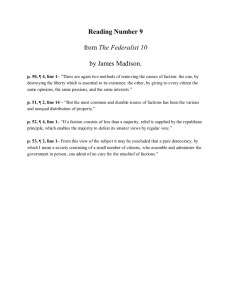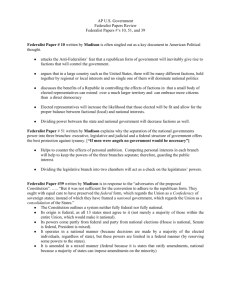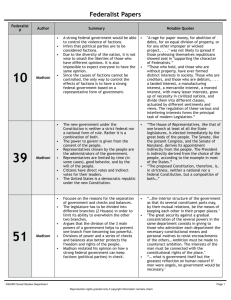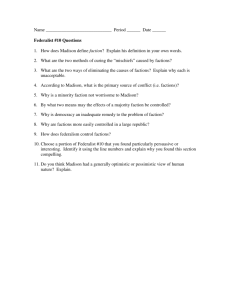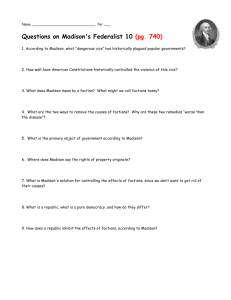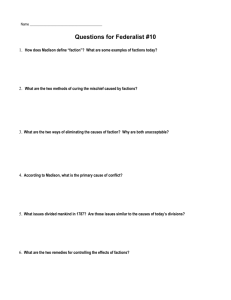Federalist Papers
advertisement
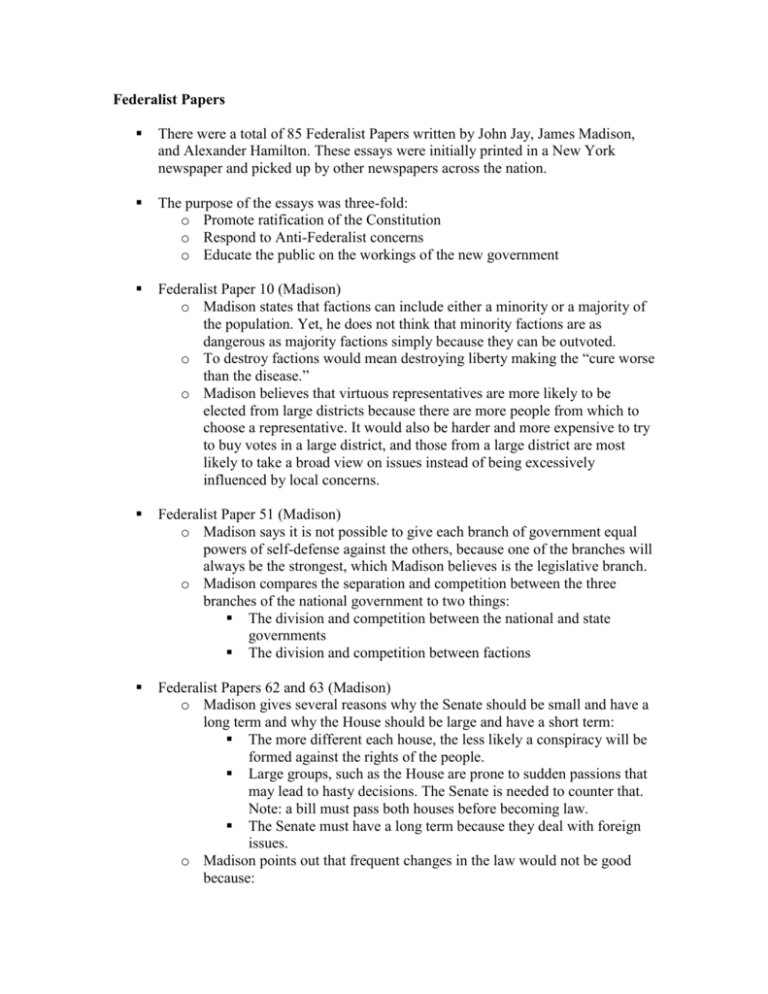
Federalist Papers There were a total of 85 Federalist Papers written by John Jay, James Madison, and Alexander Hamilton. These essays were initially printed in a New York newspaper and picked up by other newspapers across the nation. The purpose of the essays was three-fold: o Promote ratification of the Constitution o Respond to Anti-Federalist concerns o Educate the public on the workings of the new government Federalist Paper 10 (Madison) o Madison states that factions can include either a minority or a majority of the population. Yet, he does not think that minority factions are as dangerous as majority factions simply because they can be outvoted. o To destroy factions would mean destroying liberty making the “cure worse than the disease.” o Madison believes that virtuous representatives are more likely to be elected from large districts because there are more people from which to choose a representative. It would also be harder and more expensive to try to buy votes in a large district, and those from a large district are most likely to take a broad view on issues instead of being excessively influenced by local concerns. Federalist Paper 51 (Madison) o Madison says it is not possible to give each branch of government equal powers of self-defense against the others, because one of the branches will always be the strongest, which Madison believes is the legislative branch. o Madison compares the separation and competition between the three branches of the national government to two things: The division and competition between the national and state governments The division and competition between factions Federalist Papers 62 and 63 (Madison) o Madison gives several reasons why the Senate should be small and have a long term and why the House should be large and have a short term: The more different each house, the less likely a conspiracy will be formed against the rights of the people. Large groups, such as the House are prone to sudden passions that may lead to hasty decisions. The Senate is needed to counter that. Note: a bill must pass both houses before becoming law. The Senate must have a long term because they deal with foreign issues. o Madison points out that frequent changes in the law would not be good because: Foreign nations would view America’s government as unstable It would cause a lack of order and endanger the “blessing of liberty.” Laws affect the economy and if laws change too often, then people will not make long-term investments in their farms and businesses. Federalist Paper 70 (Hamilton) o Hamilton gives two reasons the legislature should act slowly: The legislature needs to take its time and deliberate carefully Taking a long time controls majority factions o Hamilton opposes an executive ruled by several or plurality: Differences of opinion would cause division Differences would encourage opposing factions It would be harder to know who is at fault in a plurality executive Federalist Paper 78 (Hamilton) o Hamilton feels that a republic is more apt to produce good judges because judges are influenced by the demands of the people o Hamilton believes that the judicial branch is the weakest of the three branches of government and does not feel that having the power of judicial review will make it too powerful. o Antifederalists were fearful that with the power of judicial review that judges would just get rid of any law that they did not like. Hamilton argues that they can already do that by saying it clashes with another law or by pretending its meaning is different from its true meaning. o Hamilton stresses the importance of appointing judge that can be trusted. Judges must be trusted to interpret the law correctly and not legislate from the bench. Questions: 1) In one sentence (two max) summarize each Federalist Paper outlined above. 2) Why do you believe the author of this document listed Federalist #10 first? What is its importance in the moment and in modern times? 3) What core principle is established in Federalist #51? 4) Can you apply any of these debates to modern day issues and topics? List and explain.
